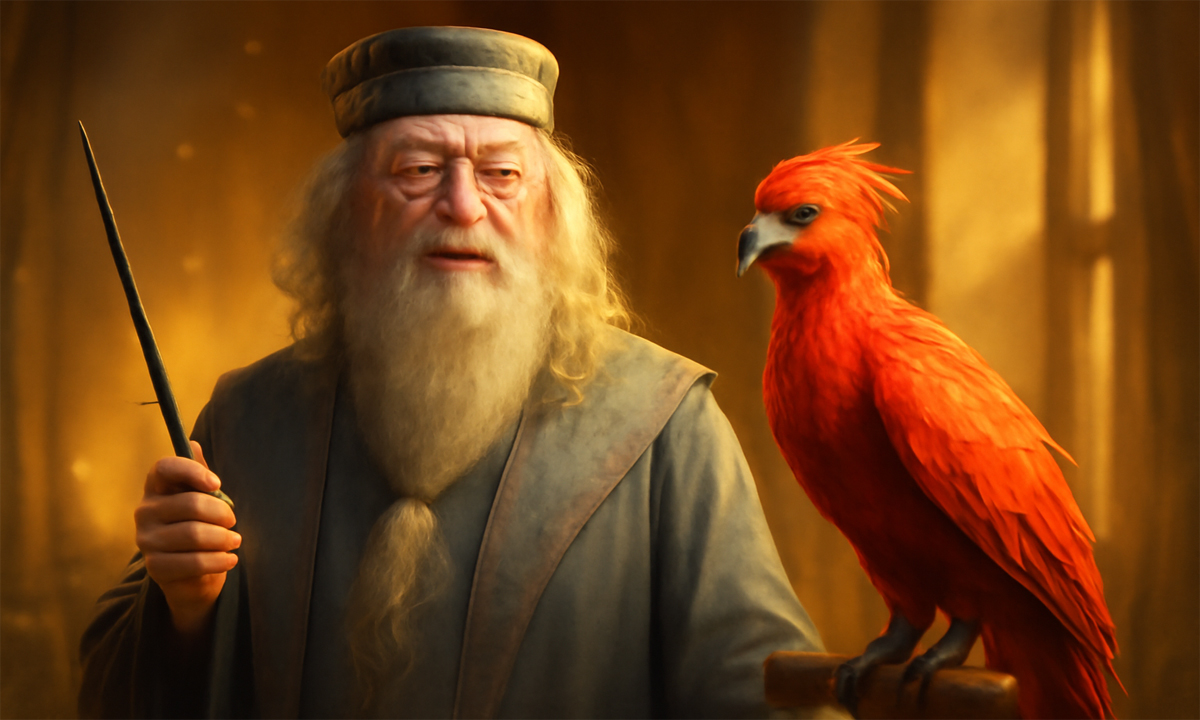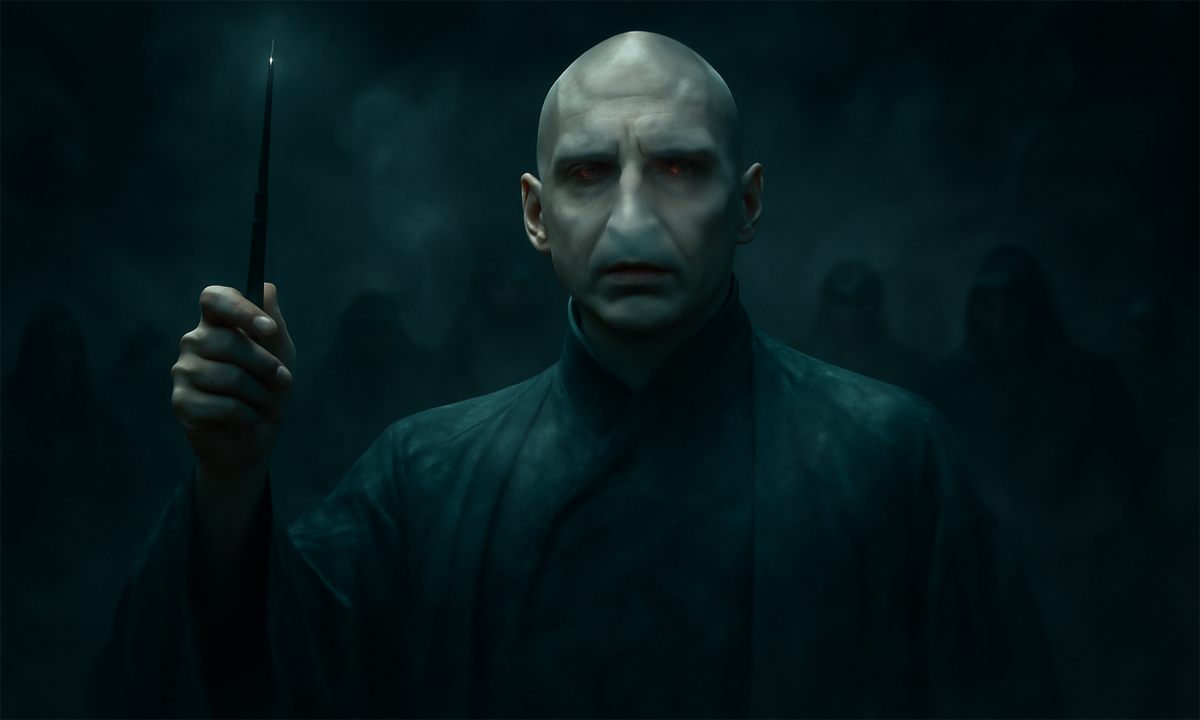
In-Depth Harry Potter Character Analysis: Exploring the Complexities of Your Favorite Wizards and Witches
Have you ever wondered what truly makes Harry Potter and his friends so unforgettable? 
In this article, we’ll explore the psychological layers behind the characters that have captured our hearts for decades. Whether you’re a long-time fan or new to the series, understanding the depth of these characters will enhance your appreciation of the story, while offering a new perspective on their role in the wizarding world. Keep reading, and unlock the true power of character development in the Harry Potter universe.
Table of Contents
ToggleThe Protagonist – Harry Potter: The Boy Who Lived
 Harry Potter, the central figure of J.K. Rowling’s magical world, is more than just the “Chosen One”—he’s a character with layers of complexity that resonate with readers of all ages. Known as the Boy Who Lived, Harry’s journey from a lonely child to a powerful wizard is both inspiring and relatable. Let’s dive into what makes Harry such an enduring and beloved character.
Harry Potter, the central figure of J.K. Rowling’s magical world, is more than just the “Chosen One”—he’s a character with layers of complexity that resonate with readers of all ages. Known as the Boy Who Lived, Harry’s journey from a lonely child to a powerful wizard is both inspiring and relatable. Let’s dive into what makes Harry such an enduring and beloved character.
Harry’s Early Struggles: A Lonely Orphan
From the moment he was left on the doorstep of the Dursleys, Harry’s life was shaped by hardship. Raised by an aunt and uncle who never showed him love, he grew up in the shadow of his tragic past. The emotional weight of being an orphan, especially one whose parents were killed by the darkest wizard of all time, affected his self-worth and sense of belonging. This isolation laid the foundation for much of Harry’s personality.
Key Insight: Harry’s early struggles with loneliness and rejection make him a deeply empathetic character. Readers relate to his desire for family and acceptance, making his emotional journey more impactful.
The Hero’s Journey: Rising to the Challenge
Despite his humble and painful beginnings, Harry’s life changes when he receives his letter to Hogwarts. For the first time, he’s recognized for his uniqueness and potential. However, being “the Chosen One” isn’t all glory—Harry’s journey is fraught with challenges, both external (facing dark forces) and internal (dealing with his own fears and doubts). Throughout the series, he constantly questions his worthiness and struggles with the pressure of his destiny.
Key Insight: Harry’s self-doubt and internal battles are what make him relatable. Many of us face moments of uncertainty, and Harry’s perseverance shows that overcoming these obstacles is possible with determination and self-belief.
Harry’s Core Strengths: Bravery, Loyalty, and Love
Harry’s bravery is well-known, but it’s his loyalty and ability to love that truly define him. Whether it’s his commitment to his friends, like Ron and Hermione, or his willingness to sacrifice himself for others, Harry’s sense of duty goes beyond heroism—it’s about protecting what matters most. His deep love for his parents and his belief in the power of love itself are consistent themes throughout the story.
Key Insight: The importance of love and loyalty in Harry’s life is not just central to the plot—it’s the driving force behind many of his greatest achievements. This emphasizes that strength isn’t just about power; it’s about the connections we build with others.
Harry’s Growth: From Naivety to Wisdom
Over the course of the series, Harry matures into a leader who is willing to make difficult decisions. His journey isn’t just about magical battles—it’s about navigating moral gray areas. He learns that defeating evil isn’t always straightforward, and sometimes, the hardest part of being a hero is knowing when to act and when to let go. By the end of the series, Harry’s wisdom and emotional intelligence have far surpassed the naïve young boy we first met.
Key Insight: Harry’s growth from a naive, impulsive child to a thoughtful and wise young adult offers a powerful lesson in the value of experience, reflection, and emotional maturity.
Harry Potter’s character arc teaches us invaluable lessons about bravery, friendship, and love. His journey is one of self-discovery, filled with trials and triumphs that anyone can relate to. Whether you’re new to the series or a long-time fan, understanding the depth of Harry’s character can provide a richer experience as you revisit the books or films. Harry is not just a hero because of his magical abilities, but because of his heart and his choices.
Hermione Granger: The Intellectual and Moral Compass
 Hermione Granger is more than just the brightest witch of her age—she’s the heart of the trio and a crucial guide throughout the Harry Potter series. While Harry may be the hero and Ron the loyal sidekick, Hermione’s intellect, moral compass, and unwavering determination make her an indispensable force in their fight against evil. Let’s dive into what makes Hermione such an inspiring and multifaceted character.
Hermione Granger is more than just the brightest witch of her age—she’s the heart of the trio and a crucial guide throughout the Harry Potter series. While Harry may be the hero and Ron the loyal sidekick, Hermione’s intellect, moral compass, and unwavering determination make her an indispensable force in their fight against evil. Let’s dive into what makes Hermione such an inspiring and multifaceted character.
The Power of Knowledge: Hermione’s Intellectual Strength
From the very beginning, Hermione is portrayed as a studious, rule-abiding student with a thirst for knowledge. Whether it’s acing every test or solving complicated spells, her intellectual capabilities set her apart. But Hermione’s dedication to learning isn’t just about grades—it’s about using her knowledge to solve problems and help those around her.
Key Insight: Hermione’s intellectual strength shows us that knowledge isn’t just power—it’s a tool for change. Her ability to apply what she learns to real-world challenges proves the value of education and critical thinking.
Hermione’s Moral Compass: Standing Up for What’s Right
One of Hermione’s most admirable qualities is her strong sense of justice. Throughout the series, she consistently stands up for what she believes in, even when it’s difficult or unpopular. Whether it’s her campaign for house-elf rights through S.P.E.W. (Society for the Promotion of Elfish Welfare) or her dedication to doing the right thing, Hermione is always a moral leader.
Key Insight: Hermione teaches us the importance of standing up for what’s right, even when it requires challenging norms or facing opposition. Her moral integrity is a reminder that we all have the power to make a difference by doing what we know is right.
Dealing with Insecurity: Hermione’s Vulnerabilities
Despite her intellectual prowess and moral fortitude, Hermione isn’t immune to insecurities. Early in the series, she’s often seen as a know-it-all, which isolates her from others. She constantly worries about not being accepted and struggles with the pressure of perfection. But over time, she learns to embrace her unique qualities, growing into a more confident and self-assured individual.
Key Insight: Hermione’s struggles with insecurity and her eventual self-acceptance teach us that vulnerability is a part of personal growth. Perfection isn’t the goal—embracing who we are is.
Hermione’s Evolution: From Rule Follower to Independent Thinker
Throughout the series, Hermione evolves from a rule-following student to a bold and independent thinker. As the trio faces life-or-death situations, Hermione learns that following the rules isn’t always the best course of action. Her ability to think outside the box, whether by using a time-turner or breaking into Gringotts, highlights her courage to take risks and make difficult decisions.
Key Insight: Hermione’s journey shows us the value of questioning authority when necessary and trusting our own judgment. It reminds us that growth often requires stepping outside of our comfort zones.
Hermione Granger is a character who balances intellect, courage, and compassion. Her growth throughout the series reminds us that being smart is important, but being morally grounded and compassionate is just as crucial. Whether you admire her for her academic brilliance or her fierce loyalty to her friends, Hermione offers valuable lessons on leadership, self-worth, and standing up for what’s right. She’s not just the smartest witch—she’s a role model for anyone striving to make a positive impact in the world.
Ron Weasley: The Loyal and Relatable Sidekick
Ron Weasley may not be as famous as Harry or as brilliant as Hermione, but his loyalty, humor, and courage make him an essential part of the Harry Potter trio. As the “relatable” sidekick, Ron’s flaws and strengths come together to make him one of the most beloved characters in the series. Let’s dive into why Ron Weasley’s character is both unique and vital to the success of the group. 
The Underdog: Ron’s Struggle with Self-Doubt
One of Ron’s most relatable traits is his constant struggle with self-doubt. Coming from a large, loving family where his siblings often outshine him, Ron feels like he’s always in someone else’s shadow. Whether it’s his brothers’ success or Harry’s fame, Ron often feels inadequate, which sometimes leads to insecurity.
Key Insight: Ron’s feelings of inadequacy remind us that it’s normal to compare ourselves to others, but true growth comes from embracing our unique qualities. His journey shows that confidence doesn’t come from external validation but from accepting ourselves.
Ron’s Loyalty: Always There for His Friends
Despite his insecurities, Ron’s loyalty is unwavering. Whether he’s fighting off giant chess pieces, standing by Harry during tough times, or risking his life to protect his friends, Ron always shows up when it matters most. His loyalty isn’t just about being present physically—it’s about being there emotionally and showing that he truly cares.
Key Insight: Ron teaches us the value of true friendship. It’s not about being perfect or always getting things right, but about standing by your friends and supporting them when they need you the most.
Ron’s Humor: Bringing Light to Dark Moments
Ron’s humor is more than just comic relief—it’s a coping mechanism. In the darkest moments of the series, Ron often uses humor to lighten the mood, making the tough times a bit more bearable. His ability to make people laugh, even in life-threatening situations, is one of his greatest strengths.
Key Insight: Ron’s humor shows that laughter can be a powerful tool for resilience. In times of stress or uncertainty, finding humor in the situation can help us cope and connect with others.
Ron’s Growth: From Comic Relief to Heroic Action
While Ron begins the series as the comic sidekick, he undergoes significant growth throughout the books. He moves beyond being the “funny one” and becomes a key player in the battle against Voldemort. Whether it’s overcoming his fears or taking a stand in the final battle, Ron proves time and again that he has what it takes to be a hero.
Key Insight: Ron’s character arc reminds us that we all have untapped potential. Growth happens when we step up, face our fears, and take action, even when we doubt ourselves.
Ron Weasley may not be the chosen one or the brightest witch of his age, but his loyalty, humor, and emotional growth make him an irreplaceable part of the trio. He shows us that being a hero doesn’t require perfection—sometimes, it just takes being there for your friends, embracing your flaws, and finding the strength to rise when it counts. Ron’s relatability and courage make him a true hero in his own right.
Severus Snape: The Complex Antihero
Severus Snape is one of the most complex characters in the Harry Potter series. At first glance, he seems like a cold, calculating villain. However, as the story unfolds, we discover that Snape’s character is filled with contradictions and hidden depths. His journey from antagonist to tragic hero makes him a compelling figure whose motives and actions leave readers questioning the nature of good and evil. Let’s explore what makes Severus Snape such a captivating and multifaceted character. 
Snape’s Duality: The Antagonist Who Protects
From the very beginning, Snape is presented as a villain: a sneering Potions Master, always picking on Harry and his friends. His dark, brooding persona makes him appear untrustworthy, and his ties to the Death Eaters further solidify his role as an antagonist. But as the series progresses, it becomes clear that Snape’s loyalties are more complex than they first appear.
Key Insight: Snape’s duality reminds us that people are often more than they seem. What appears as antagonism may, in fact, be an expression of deep internal conflict and unresolved emotions. His character teaches us to look beyond the surface and question motives.
The Tragic Love Story: Snape’s Devotion to Lily Potter
One of the most defining aspects of Snape’s character is his undying love for Lily Potter, Harry’s mother. This love, which begins in childhood and lasts throughout his life, drives many of his actions, including his decision to protect Harry. Despite his bitterness toward Harry for looking so much like his father, Snape’s love for Lily compels him to safeguard Harry—proving that love, even if unrequited, can be a powerful motivator.
Key Insight: Snape’s tragic love story demonstrates that love isn’t always clean or easy. Sometimes, it’s messy and painful, but it can also drive us to make selfless choices. This makes Snape’s loyalty to Lily—and ultimately to Harry—even more poignant.
Snape’s Moral Ambiguity: The Hero Who Isn’t Perfect
Snape is one of the most morally ambiguous characters in the Harry Potter universe. He is neither purely good nor purely evil, and his actions often fall somewhere in between. As a teacher, he’s harsh, unfair, and frequently cruel. However, he is also a key player in the fight against Voldemort, and many of his questionable actions are later revealed to have been part of his undercover work.
Key Insight: Snape shows us that heroes don’t have to be flawless. In fact, it’s often their flaws and mistakes that make them relatable. Snape’s moral complexity helps us understand that good and evil aren’t always clear-cut, and real-life decisions often involve difficult trade-offs.
The Ultimate Sacrifice: Snape’s Redemption Arc
In the final book, Snape’s true motivations are revealed—he was working to protect Harry all along, despite his outward hostility. His ultimate sacrifice, dying at the hands of Voldemort in order to protect Harry and further the cause of good, redeems his character and adds layers to his previously harsh exterior. Snape’s bravery, despite his dark past, marks him as an unexpected hero.
Key Insight: Snape’s redemption arc teaches us that it’s never too late to make a change. Despite his earlier mistakes, Snape ultimately becomes a hero, showing that even those with dark pasts can choose to act for the greater good.
Severus Snape’s character teaches us valuable lessons about the complexity of human nature. His journey reminds us that people are often a blend of light and dark, good and bad. Snape’s redemption shows us that the path to heroism isn’t always straightforward, and that true bravery often lies in the choices we make—especially when they are not seen or appreciated by others. His transformation from antagonist to hero is one of the most powerful in the Harry Potter series, and it leaves us with a deeper understanding of loyalty, love, and sacrifice.
Albus Dumbledore: The Wise and Compassionate Mentor
Albus Dumbledore is more than just the headmaster of Hogwarts—he’s a guiding figure for Harry Potter and many other characters throughout the series. With his wisdom, compassion, and strategic thinking, Dumbledore stands as a mentor who shapes the events of the story. But beneath his calm demeanor lies a complex character, one who has made mistakes and faced deep moral dilemmas. Let’s take a closer look at what makes Dumbledore such a pivotal character in the Harry Potter series. 
Dumbledore’s Wisdom: The Power of Knowledge and Experience
Dumbledore’s wisdom isn’t just about his vast magical knowledge—it’s about his deep understanding of people and the world around him. Throughout the series, he shares valuable life lessons with Harry, often encouraging him to think critically and make decisions based on love and morality, rather than fear or hatred. His experience with both light and dark forces gives him a unique perspective on the world.
Key Insight: Dumbledore teaches us that wisdom comes not only from books or learning but from the experiences we have and the choices we make. His guidance reminds us to think deeply and consider the bigger picture when making decisions.
Dumbledore’s Compassion: Leading with Empathy
One of Dumbledore’s most defining traits is his compassion. He cares deeply for his students and his colleagues, and this empathy drives much of his actions. Dumbledore often sees the potential in people that others might overlook, and his belief in the good within others motivates him to help them achieve greatness. His relationship with Harry, in particular, is one of mentorship, protection, and genuine care.
Key Insight: Dumbledore shows us the importance of leading with empathy. True leadership is about understanding and valuing the people you guide, not just about giving orders. By showing compassion, we can inspire others to be their best selves.
Dumbledore’s Moral Complexity: The Burden of Choices
While Dumbledore is often portrayed as a perfect mentor, his character is not without flaws. His past is marked by mistakes—most notably, his early relationship with Gellert Grindelwald and the impact of their shared ambitions. Dumbledore’s guilt over these choices haunts him throughout his life, and he grapples with the consequences of his actions. This moral complexity adds depth to his character, showing that even the wisest can struggle with their own demons.
Key Insight: Dumbledore’s mistakes remind us that no one is perfect. We all make errors, but what matters is how we learn from them and how we move forward. His story encourages us to accept our imperfections and continue striving for personal growth.
The Sacrifice: Dumbledore’s Ultimate Decision
As the series progresses, Dumbledore’s role becomes even more complex. In the final stages of the battle against Voldemort, Dumbledore makes a profound decision: he knows he is dying and that his time is limited. This leads him to orchestrate a plan with Harry, putting the pieces of the puzzle together in a way that ensures Harry will be able to defeat Voldemort. Dumbledore’s acceptance of his fate, and his willingness to sacrifice himself for the greater good, solidify his legacy as a true hero.
Key Insight: Dumbledore teaches us about the power of self-sacrifice. Sometimes, the best way to help others is by letting go and allowing them to take on responsibilities. His actions show that real leadership often involves making tough, selfless decisions for the good of others.
Albus Dumbledore is a character whose wisdom, compassion, and moral complexity make him one of the most memorable figures in Harry Potter. His journey reminds us that wisdom is a blend of knowledge and experience, that true leadership is rooted in empathy, and that even the most righteous individuals must face their own flaws. Dumbledore’s lessons—on love, sacrifice, and growth—offer us timeless guidance that extends far beyond the pages of the books.
The Villain – Lord Voldemort: Fear and Power
Lord Voldemort, the dark wizard who casts a shadow over the Harry Potter series, is the epitome of fear and power. From his chilling rise to dominance to his eventual downfall, Voldemort’s character offers a deep dive into the consequences of unchecked ambition, fear, and the desire for control. Let’s explore what makes Voldemort such a terrifying and complex villain. 
Voldemort’s Obsession with Immortality
At the heart of Voldemort’s quest for power is his desire to conquer death. His obsession with immortality drives him to commit unspeakable acts, including creating Horcruxes—objects that house parts of his soul. Voldemort believes that by separating his soul into multiple pieces, he can avoid death and become invincible. This fear of mortality reveals his deep insecurity and his inability to accept the natural course of life.
Key Insight: Voldemort’s fear of death teaches us the dangers of obsession. His unwillingness to embrace mortality leads him down a path of destruction. The message here is clear: trying to control things beyond our reach often leads to greater harm.
Voldemort’s Lack of Love and Humanity
One of the defining aspects of Voldemort’s character is his inability to love. Having been abandoned as a child by his mother, he grows up devoid of affection and compassion. This lack of love fuels his cruelty and disdain for weakness, which he sees as a form of vulnerability. Voldemort’s belief that emotions like love are weaknesses makes him ruthless and unable to form genuine connections.
Key Insight: Voldemort’s inability to love highlights the importance of emotional connection. Love, as portrayed in the Harry Potter series, is a source of strength and resilience, something Voldemort will never understand. His failure to connect emotionally makes him weak in the end.
Voldemort’s Use of Fear as Power
Voldemort’s greatest tool is fear. His followers, the Death Eaters, are loyal because they fear him, and his enemies are paralyzed by the terror he instills. Voldemort uses fear not just as a weapon, but as a means of control. His reign of terror is marked by his ability to manipulate others into submission through threats and violence. However, this reliance on fear is also his greatest weakness—fear can only hold people for so long.
Key Insight: Voldemort teaches us the danger of ruling through fear. While fear can control people temporarily, it doesn’t inspire true loyalty or trust. True power, as Harry shows, comes from love, respect, and mutual understanding, not fear.
The Downfall of Voldemort: His Inability to Understand Others
Voldemort’s downfall comes because he fails to understand the value of relationships and selflessness. Unlike Harry, whose love for his friends and the sacrifices he makes for others empower him, Voldemort is completely isolated. He underestimates the power of those willing to fight for something greater than themselves, like Harry’s unwavering determination to protect his loved ones. In the end, Voldemort’s inability to connect emotionally and his reliance on fear lead to his demise.
Key Insight: Voldemort’s fall shows us the power of selflessness and the strength that comes from working together for a common cause. His inability to understand the importance of others—of friendship, loyalty, and love—leads to his failure.
Lord Voldemort is a character who embodies the consequences of fear, power, and unchecked ambition. His inability to love and his obsession with immortality ultimately make him a tragic figure, showing that true strength doesn’t come from control, but from love and human connection. Voldemort’s journey is a cautionary tale: the pursuit of power for power’s sake comes with a steep price. By understanding his character, we learn the importance of embracing vulnerability, the power of love, and the dangers of living in fear.
The Villain – Lord Voldemort: Fear and Power
Lord Voldemort, the dark wizard who casts a shadow over the Harry Potter series, is the epitome of fear and power. From his chilling rise to dominance to his eventual downfall, Voldemort’s character offers a deep dive into the consequences of unchecked ambition, fear, and the desire for control. Let’s explore what makes Voldemort such a terrifying and complex villain.
Voldemort’s Obsession with Immortality
At the heart of Voldemort’s quest for power is his desire to conquer death. His obsession with immortality drives him to commit unspeakable acts, including creating Horcruxes—objects that house parts of his soul. Voldemort believes that by separating his soul into multiple pieces, he can avoid death and become invincible. This fear of mortality reveals his deep insecurity and his inability to accept the natural course of life.
Key Insight: Voldemort’s fear of death teaches us the dangers of obsession. His unwillingness to embrace mortality leads him down a path of destruction. The message here is clear: trying to control things beyond our reach often leads to greater harm.
Voldemort’s Lack of Love and Humanity
One of the defining aspects of Voldemort’s character is his inability to love. Having been abandoned as a child by his mother, he grows up devoid of affection and compassion. This lack of love fuels his cruelty and disdain for weakness, which he sees as a form of vulnerability. Voldemort’s belief that emotions like love are weaknesses makes him ruthless and unable to form genuine connections.
Key Insight: Voldemort’s inability to love highlights the importance of emotional connection. Love, as portrayed in the Harry Potter series, is a source of strength and resilience, something Voldemort will never understand. His failure to connect emotionally makes him weak in the end.
Voldemort’s Use of Fear as Power
Voldemort’s greatest tool is fear. His followers, the Death Eaters, are loyal because they fear him, and his enemies are paralyzed by the terror he instills. Voldemort uses fear not just as a weapon, but as a means of control. His reign of terror is marked by his ability to manipulate others into submission through threats and violence. However, this reliance on fear is also his greatest weakness—fear can only hold people for so long.
Key Insight: Voldemort teaches us the danger of ruling through fear. While fear can control people temporarily, it doesn’t inspire true loyalty or trust. True power, as Harry shows, comes from love, respect, and mutual understanding, not fear.
The Downfall of Voldemort: His Inability to Understand Others
Voldemort’s downfall comes because he fails to understand the value of relationships and selflessness. Unlike Harry, whose love for his friends and the sacrifices he makes for others empower him, Voldemort is completely isolated. He underestimates the power of those willing to fight for something greater than themselves, like Harry’s unwavering determination to protect his loved ones. In the end, Voldemort’s inability to connect emotionally and his reliance on fear lead to his demise.
Key Insight: Voldemort’s fall shows us the power of selflessness and the strength that comes from working together for a common cause. His inability to understand the importance of others—of friendship, loyalty, and love—leads to his failure.
Lord Voldemort is a character who embodies the consequences of fear, power, and unchecked ambition. His inability to love and his obsession with immortality ultimately make him a tragic figure, showing that true strength doesn’t come from control, but from love and human connection. Voldemort’s journey is a cautionary tale: the pursuit of power for power’s sake comes with a steep price. By understanding his character, we learn the importance of embracing vulnerability, the power of love, and the dangers of living in fear.
The Timeless Lessons of the Harry Potter Characters
The characters of Harry Potter are not just magical beings—they are complex, deeply human figures who grapple with love, fear, identity, and morality. From Harry’s growth as a leader to Voldemort’s fall due to his fear of death, each character’s journey provides timeless lessons that resonate far beyond the wizarding world. Whether you admire Hermione’s intellect, Ron’s loyalty, or Dumbledore’s wisdom, each character offers valuable insights into how we navigate our own lives.
The Harry Potter character analysis not only helps us understand these beloved figures on a deeper level but also teaches us about the nature of human growth, relationships, and the choices that define us. These characters remind us that our flaws don’t make us weak—they make us real. And it’s through embracing both our strengths and weaknesses that we find our true potential.
As we continue to revisit the magical world of Hogwarts, let’s remember that the characters of Harry Potter are more than just fictional heroes and villains—they are reflections of our own struggles, triumphs, and the ongoing quest for meaning in our lives.
So, next time you pick up a Harry Potter book or watch one of the films, take a moment to reflect on the deeper lessons these characters offer. They might just teach you something about yourself that you didn’t know before. 
Frequently Asked Questions (FAQs)
1. Who is the most complex character in the Harry Potter series?
Many consider Severus Snape the most complex character in the Harry Potter series. His actions, motivations, and loyalties are often ambiguous throughout the books. His deep love for Lily Potter and his ultimate sacrifice show the complexity of his character, making him one of the most debated and misunderstood figures in the series.
2. Why is Harry Potter considered a heroic character?
Harry Potter is often seen as a hero because he consistently chooses to stand up against evil, even when it risks his life. His bravery, loyalty, and willingness to sacrifice for others define his character. Unlike typical heroes, Harry grows over time, learning about his flaws and the importance of love and friendship in overcoming challenges.
3. What makes Hermione Granger such a strong character?
Hermione Granger is admired for her intelligence, determination, and loyalty. She is one of the most reliable and skilled witches, often using her brains to get out of tricky situations. Beyond her intellect, Hermione shows great compassion and courage, making her an essential member of the trio.
4. Why is Draco Malfoy’s character so important to the Harry Potter series?
Draco Malfoy’s character represents the struggle between upbringing and choice. Although raised in a family that supports pure-blood superiority, Draco’s character development shows how influence and personal choices shape one’s future. His shift from being a rival to Harry to questioning his family’s values makes him a key figure in the story.
5. What are the key traits of Albus Dumbledore’s character?
Albus Dumbledore is known for his wisdom, kindness, and powerful magical abilities. He is a strategic thinker who works for the greater good but also carries a personal burden due to his past mistakes. Dumbledore’s moral complexity, as someone who sometimes makes questionable choices for the “greater good,” adds depth to his character.
6. How does the character of Lord Voldemort differ from other villains?
Lord Voldemort is different from other villains because of his obsession with immortality and fear of death. Unlike most villains who seek power for control or revenge, Voldemort’s motivations stem from deep-seated insecurities and a desire to conquer death itself. This fear drives many of his cruel actions throughout the series.
7. What role does Ginny Weasley play in the series, and how does her character evolve?
Ginny Weasley starts off as a shy, younger sister, but her character grows into a strong, confident witch. Over time, she becomes a leader in her own right, showing great courage and independence. Her relationship with Harry Potter evolves into a key part of her character arc, demonstrating her emotional growth and self-assurance.
8. What makes Luna Lovegood a unique character in Harry Potter?
Luna Lovegood is unique because she is unapologetically herself, with a quirky and open-minded approach to life. Her belief in things others find strange, like the Crumple-Horned Snorkack, adds an element of whimsy, but she also shows depth in her loyalty and courage. Luna’s character highlights the importance of individuality and staying true to oneself.




















